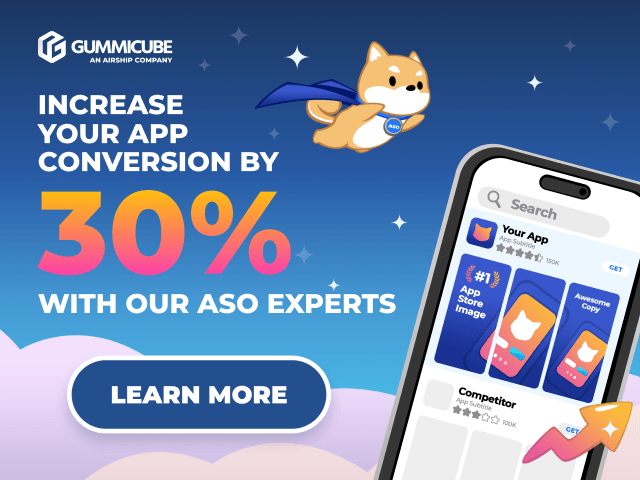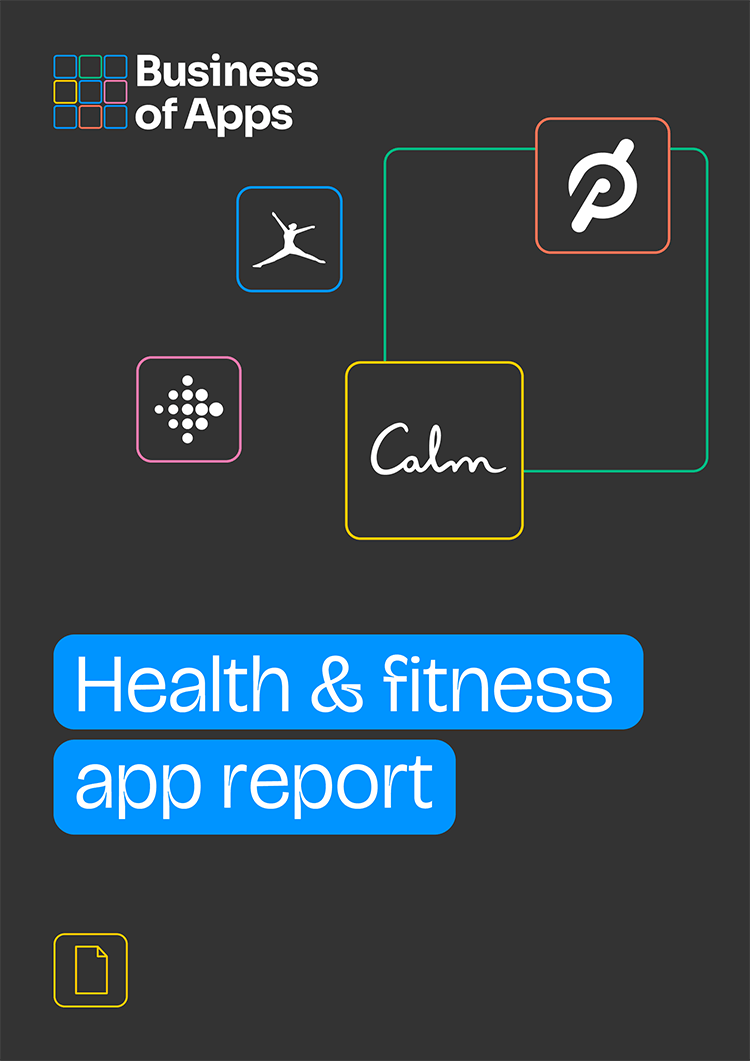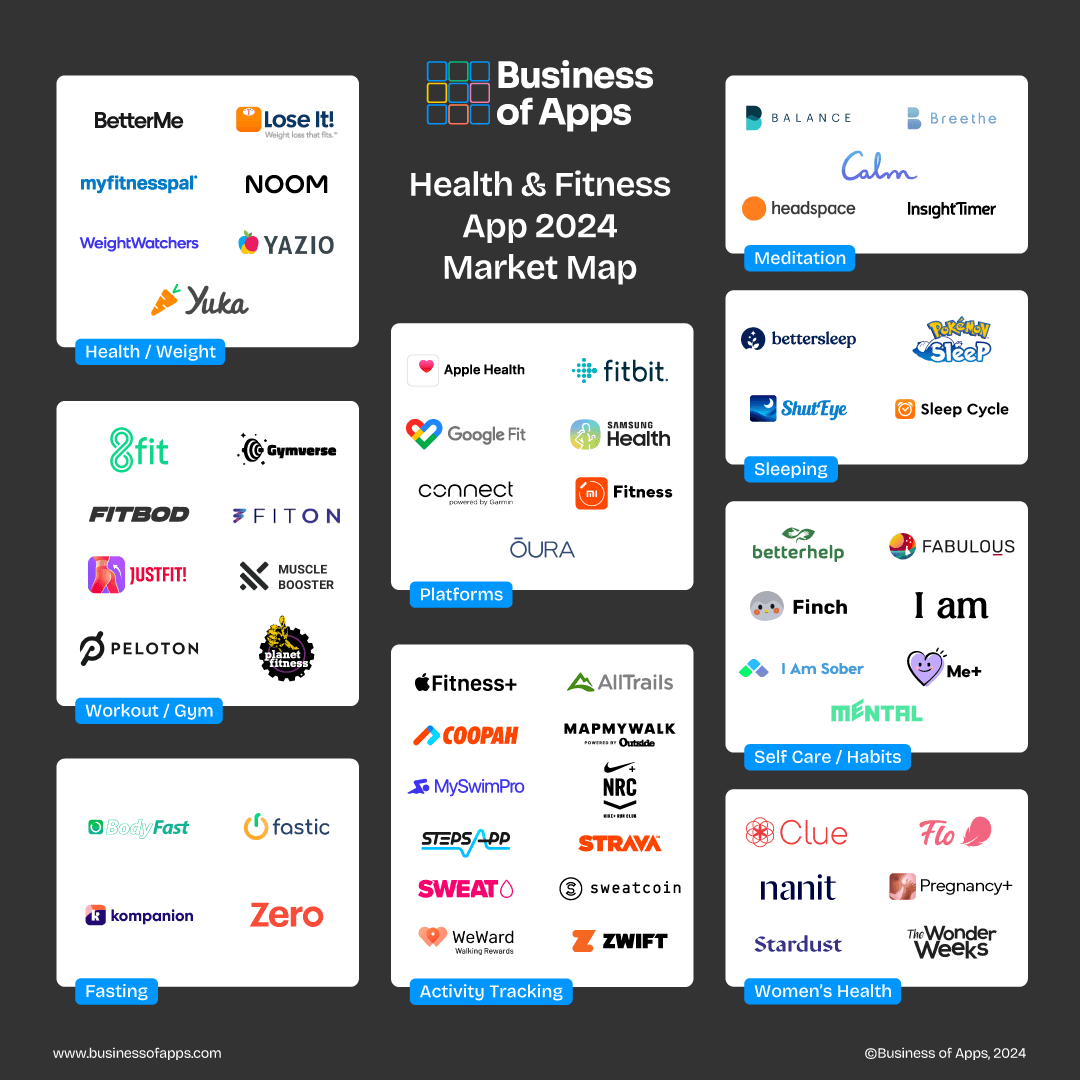Globally, around 11 percent of the population are estimated to have a mental health disorder. Factors including social stigma, limited healthcare access and cost can prohibit those with mental health issues from receiving support. However, wellness apps have offered another route through self-help.
Users turn to wellness apps to help with stress reduction, reduce burnout and improve sleep. To do this, companies offer tools such as mediation guides, daily affirmations and sleep tracking tools.
Many of the apps focus on quick daily engagement, with a morning affirmation, a regular goal or guided mediations. These sometimes include traditional mental health services like interaction with a therapist, although generally they focus more on mindfulness.
Traditional talking therapies struggle with affordability and access. The demand for in-person mental health services outstrips the capacity of therapists and health services, further driving more people to wellness apps. Services offered by apps have expanded to cover some of the gap left by conventional treatment.
At the beginning of the coronavirus pandemic, downloads of Calm and Headspace shot up and with it their revenue. Anxious and stressed people faced with worldwide uncertainty and restricted access to in-person, conventional mental health and wellbeing support, turned to wellness apps.
This sudden growth has tapered off but the outlook remains positive for the sector. While the region generating the most revenue in mental wellbeing apps remains North America, the Asia Pacific region is forecast to experience the most growth over the next decade.
We have collected data and statistics on the wellness sector. Read on below to find out more. If you want to dive deeper into the wellness industry, check out our Health & Fitness App report.
Key Wellness Statistics
- Wellness apps generated $880 million revenue in 2024, a slump of 7.3% on the previous year
- North America was responsible for $417 million of that revenue
- Mediation app Calm generated $227 million revenue in 2024
- 50 million people used wellness apps in 2024
- There were 125 million wellness apps installed in 2024, a decrease of four million on the year prior
Health & Fitness App Report 2025
Want to learn more about the health & fitness app industry? In our Health & Fitness App report, we cover financials, usage, downloads, and demographics by age and gender, alongside market share, engagement, and benchmarks.
Top Wellness Apps
| App Name | Description | |
|---|---|---|
| https://betterme.world/ | BetterMe | BetterMe markets itself as a healthy lifestyle programme without extreme weight loss, focusing on wellbeing |
| https://www.bettersleep.com/ | BetterSleep | Formally known as Relax Melodies, BetterSleep analyses users' chronotypes, tracks sleep and creates bedtime routines |
| https://www.businessofapps.com/data/calm-statistics/ | Calm | Calm includes mediation tools, sleep aids and video lessons on gentle stretching |
| https://www.thefabulous.co/ | Fabulous | A self-care coaching app to build daily habits such as drinking water, exercising and focused working |
| https://www.businessofapps.com/data/headspace-statistics/ | Headspace | Mediation app Headspace offers courses for stress, anger, depression and work performance, as well as programmes for sleep and exercise |
| https://iamaffirmations.app/ | I Am | I Am centres on daily affirmations to build self-confidence and change thought patterns |
| https://apps.apple.com/gb/app/relax-app-meditation-sleep/id1554339016 | Relax | Users have access to exercises and programmes to improve mindfulness and mental health |
| https://www.sleepcycle.com/ | Sleep Cycle | With an alarm based on sleep patterns, sleep analysis and recordings of snoring and sleep talking, Sleep Cycle is intended to improve users' sleep |
Health & Fitness App Market Landscape
Wellness apps are part of a wider ecosystem the health and fitness category. These apps include meditation, with its own subcategory sleeping. Women’s health, in the form of period and pregnancy trackers, also live in this segment. There’s also self care and habit trackers. You can download this market map as a PDF, which includes a landscape version.
Wellness App Revenue
The wellness app industry generated $880 million in 2024, another year of decline as the major apps struggle to draw in the same number of users.
Wellness app revenue 2016 to 2024 ($bn)
Wellness Revenue by Region
North America spent the most on wellness apps in 2024, followed by Europe.
Wellness app revenue by region 2024 (%)
Wellness Revenue by App
Calm and Headspace were the top apps in the wellness market in 2024, followed by Pokemon Sleep.
Wellness in app revenues 2024 (%)
Calm and Headspace revenue 2016 to 2024 ($mm)
Wellness App Usage
There were 50 million wellness app users in 2024, a significant drop from the 85 million users during lockdown.
Wellness app users 2016 to 2024 (mm)
Wellness App Market Share
Calm has the most market share in the wellness market, followed by Headspace and Sleep Cycle.
Wellness app market share 2024 (%)
Wellness App Downloads
Wellness apps shot up in popularity from 2018, peaking in 2020 with 164 million downloads.
Meditation app downloads 2016 to 2024 (mm)
More Health & Fitness App Data
- Peloton Revenue and Usage Statistics (2025)
- Flo Revenue and Usage Statistics (2025)
- Sweatcoin Revenue and Usage Statistics (2025)
- Fitness App Revenue and Usage Statistics (2025)
- Calm Revenue and Usage Statistics (2024)
- MyFitnessPal Revenue and Usage Statistics (2025)
- Health & Fitness App Benchmarks (2025)
- Strava Revenue and Usage Statistics (2025)
- Fitbit Revenue and Usage Statistics (2025)
- Headspace Revenue and Usage Statistics (2025)




